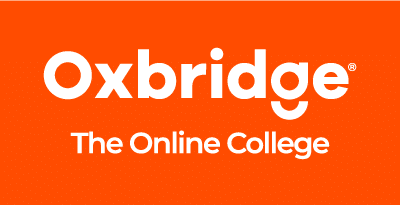IGCSE French is an international qualification designed to help students learn French as a foreign language.

Homeschooling Courses Online
Homeschooling is an alternative to traditional education where parents or guardians take responsibility for their child’s learning. It offers flexibility, personalised instruction, and a curriculum tailored to the child’s needs. Families choose homeschooling for various reasons, including academic excellence, religious beliefs, special learning needs, or dissatisfaction with conventional schooling. However, homeschooling can also be conducted using a traditional school curriculum. For a comprehensive breakdown, check out our ultimate guide to homeschooling.
View all Homeschooling courses
Search for a course
Find the right course for you or view all homeschooling courses
Popular Homeschooling courses
Get started with one of our Homeschooling courses below
-
From £395Ancient History involves exploring past civilisations and events that occurred before the Middle Ages. Generally, the term "Middle Ages" is used to refer to the time period in Europe from the collapse of the Roman Empire in 476 CE up until the beginning of the Renaissance in the 14th century.
-
From £395Ancient History involves exploring past civilisations and events that occurred before the Middle Ages. Generally, the term "Middle Ages" is used to refer to the time period in Europe from the collapse of the Roman Empire in 476 CE up until the beginning of the Renaissance in the 14th century.
-
From £395Ancient History involves exploring past civilisations and events that occurred before the Middle Ages. Generally, the term "Middle Ages" is used to refer to the time period in Europe from the collapse of the Roman Empire in 476 CE up until the beginning of the Renaissance in the 14th century.
-
From £395Ancient History involves exploring past civilisations and events that occurred before the Middle Ages. Generally, the term "Middle Ages" is used to refer to the time period in Europe from the collapse of the Roman Empire in 476 CE up until the beginning of the Renaissance in the 14th century.
-
From £395Ancient History involves exploring past civilisations and events that occurred before the Middle Ages. Generally, the term "Middle Ages" is used to refer to the time period in Europe from the collapse of the Roman Empire in 476 CE up until the beginning of the Renaissance in the 14th century.
-
From £395Ancient History involves exploring past civilisations and events that occurred before the Middle Ages. Generally, the term "Middle Ages" is used to refer to the time period in Europe from the collapse of the Roman Empire in 476 CE up until the beginning of the Renaissance in the 14th century.
-
From £395Ancient History involves exploring past civilisations and events that occurred before the Middle Ages. Generally, the term "Middle Ages" is used to refer to the time period in Europe from the collapse of the Roman Empire in 476 CE up until the beginning of the Renaissance in the 14th century.
-
From £395Ancient History involves exploring past civilisations and events that occurred before the Middle Ages. Generally, the term "Middle Ages" is used to refer to the time period in Europe from the collapse of the Roman Empire in 476 CE up until the beginning of the Renaissance in the 14th century.
-
From £395Ancient History involves exploring past civilisations and events that occurred before the Middle Ages. Generally, the term "Middle Ages" is used to refer to the time period in Europe from the collapse of the Roman Empire in 476 CE up until the beginning of the Renaissance in the 14th century.
-
From £395Ancient History involves exploring past civilisations and events that occurred before the Middle Ages. Generally, the term "Middle Ages" is used to refer to the time period in Europe from the collapse of the Roman Empire in 476 CE up until the beginning of the Renaissance in the 14th century.
-
From £395Ancient History involves exploring past civilisations and events that occurred before the Middle Ages. Generally, the term "Middle Ages" is used to refer to the time period in Europe from the collapse of the Roman Empire in 476 CE up until the beginning of the Renaissance in the 14th century.
-
From £395Ancient History involves exploring past civilisations and events that occurred before the Middle Ages. Generally, the term "Middle Ages" is used to refer to the time period in Europe from the collapse of the Roman Empire in 476 CE up until the beginning of the Renaissance in the 14th century.
-
From £395Ancient History involves exploring past civilisations and events that occurred before the Middle Ages. Generally, the term "Middle Ages" is used to refer to the time period in Europe from the collapse of the Roman Empire in 476 CE up until the beginning of the Renaissance in the 14th century.
-
From £395Ancient History involves exploring past civilisations and events that occurred before the Middle Ages. Generally, the term "Middle Ages" is used to refer to the time period in Europe from the collapse of the Roman Empire in 476 CE up until the beginning of the Renaissance in the 14th century.
-
From £395Ancient History involves exploring past civilisations and events that occurred before the Middle Ages. Generally, the term "Middle Ages" is used to refer to the time period in Europe from the collapse of the Roman Empire in 476 CE up until the beginning of the Renaissance in the 14th century.
-
From £395Ancient History involves exploring past civilisations and events that occurred before the Middle Ages. Generally, the term "Middle Ages" is used to refer to the time period in Europe from the collapse of the Roman Empire in 476 CE up until the beginning of the Renaissance in the 14th century.
-
From £395Ancient History involves exploring past civilisations and events that occurred before the Middle Ages. Generally, the term "Middle Ages" is used to refer to the time period in Europe from the collapse of the Roman Empire in 476 CE up until the beginning of the Renaissance in the 14th century.
-
From £395Ancient History involves exploring past civilisations and events that occurred before the Middle Ages. Generally, the term "Middle Ages" is used to refer to the time period in Europe from the collapse of the Roman Empire in 476 CE up until the beginning of the Renaissance in the 14th century.
-
From £395Ancient History involves exploring past civilisations and events that occurred before the Middle Ages. Generally, the term "Middle Ages" is used to refer to the time period in Europe from the collapse of the Roman Empire in 476 CE up until the beginning of the Renaissance in the 14th century.
-
From £395Ancient History involves exploring past civilisations and events that occurred before the Middle Ages. Generally, the term "Middle Ages" is used to refer to the time period in Europe from the collapse of the Roman Empire in 476 CE up until the beginning of the Renaissance in the 14th century.
-
From £395Ancient History involves exploring past civilisations and events that occurred before the Middle Ages. Generally, the term "Middle Ages" is used to refer to the time period in Europe from the collapse of the Roman Empire in 476 CE up until the beginning of the Renaissance in the 14th century.
-
From £395Ancient History involves exploring past civilisations and events that occurred before the Middle Ages. Generally, the term "Middle Ages" is used to refer to the time period in Europe from the collapse of the Roman Empire in 476 CE up until the beginning of the Renaissance in the 14th century.
-
From £395Ancient History involves exploring past civilisations and events that occurred before the Middle Ages. Generally, the term "Middle Ages" is used to refer to the time period in Europe from the collapse of the Roman Empire in 476 CE up until the beginning of the Renaissance in the 14th century.
-
From £395Ancient History involves exploring past civilisations and events that occurred before the Middle Ages. Generally, the term "Middle Ages" is used to refer to the time period in Europe from the collapse of the Roman Empire in 476 CE up until the beginning of the Renaissance in the 14th century.
-
From £395Ancient History involves exploring past civilisations and events that occurred before the Middle Ages. Generally, the term "Middle Ages" is used to refer to the time period in Europe from the collapse of the Roman Empire in 476 CE up until the beginning of the Renaissance in the 14th century.
-
From £395Ancient History involves exploring past civilisations and events that occurred before the Middle Ages. Generally, the term "Middle Ages" is used to refer to the time period in Europe from the collapse of the Roman Empire in 476 CE up until the beginning of the Renaissance in the 14th century.
-
From £395Ancient History involves exploring past civilisations and events that occurred before the Middle Ages. Generally, the term "Middle Ages" is used to refer to the time period in Europe from the collapse of the Roman Empire in 476 CE up until the beginning of the Renaissance in the 14th century.
-
From £995Ancient History involves exploring past civilisations and events that occurred before the Middle Ages. Generally, the term "Middle Ages" is used to refer to the time period in Europe from the collapse of the Roman Empire in 476 CE up until the beginning of the Renaissance in the 14th century.
-
From £995Ancient History involves exploring past civilisations and events that occurred before the Middle Ages. Generally, the term "Middle Ages" is used to refer to the time period in Europe from the collapse of the Roman Empire in 476 CE up until the beginning of the Renaissance in the 14th century.
-
From £995Ancient History involves exploring past civilisations and events that occurred before the Middle Ages. Generally, the term "Middle Ages" is used to refer to the time period in Europe from the collapse of the Roman Empire in 476 CE up until the beginning of the Renaissance in the 14th century.
-
From £995Ancient History involves exploring past civilisations and events that occurred before the Middle Ages. Generally, the term "Middle Ages" is used to refer to the time period in Europe from the collapse of the Roman Empire in 476 CE up until the beginning of the Renaissance in the 14th century.
-
From £995Ancient History involves exploring past civilisations and events that occurred before the Middle Ages. Generally, the term "Middle Ages" is used to refer to the time period in Europe from the collapse of the Roman Empire in 476 CE up until the beginning of the Renaissance in the 14th century.
-
From £995Ancient History involves exploring past civilisations and events that occurred before the Middle Ages. Generally, the term "Middle Ages" is used to refer to the time period in Europe from the collapse of the Roman Empire in 476 CE up until the beginning of the Renaissance in the 14th century.
-
From £995Ancient History involves exploring past civilisations and events that occurred before the Middle Ages. Generally, the term "Middle Ages" is used to refer to the time period in Europe from the collapse of the Roman Empire in 476 CE up until the beginning of the Renaissance in the 14th century.
-
From £295Ancient History involves exploring past civilisations and events that occurred before the Middle Ages. Generally, the term "Middle Ages" is used to refer to the time period in Europe from the collapse of the Roman Empire in 476 CE up until the beginning of the Renaissance in the 14th century.
-
From £295Ancient History involves exploring past civilisations and events that occurred before the Middle Ages. Generally, the term "Middle Ages" is used to refer to the time period in Europe from the collapse of the Roman Empire in 476 CE up until the beginning of the Renaissance in the 14th century.
-
From £295Ancient History involves exploring past civilisations and events that occurred before the Middle Ages. Generally, the term "Middle Ages" is used to refer to the time period in Europe from the collapse of the Roman Empire in 476 CE up until the beginning of the Renaissance in the 14th century.
-
From £295Ancient History involves exploring past civilisations and events that occurred before the Middle Ages. Generally, the term "Middle Ages" is used to refer to the time period in Europe from the collapse of the Roman Empire in 476 CE up until the beginning of the Renaissance in the 14th century.
-
From £295Ancient History involves exploring past civilisations and events that occurred before the Middle Ages. Generally, the term "Middle Ages" is used to refer to the time period in Europe from the collapse of the Roman Empire in 476 CE up until the beginning of the Renaissance in the 14th century.
-
From £295Ancient History involves exploring past civilisations and events that occurred before the Middle Ages. Generally, the term "Middle Ages" is used to refer to the time period in Europe from the collapse of the Roman Empire in 476 CE up until the beginning of the Renaissance in the 14th century.
-
From £695Ancient History involves exploring past civilisations and events that occurred before the Middle Ages. Generally, the term "Middle Ages" is used to refer to the time period in Europe from the collapse of the Roman Empire in 476 CE up until the beginning of the Renaissance in the 14th century.
-
From £295Ancient History involves exploring past civilisations and events that occurred before the Middle Ages. Generally, the term "Middle Ages" is used to refer to the time period in Europe from the collapse of the Roman Empire in 476 CE up until the beginning of the Renaissance in the 14th century.
-
From £295Ancient History involves exploring past civilisations and events that occurred before the Middle Ages. Generally, the term "Middle Ages" is used to refer to the time period in Europe from the collapse of the Roman Empire in 476 CE up until the beginning of the Renaissance in the 14th century.
-
From £295Ancient History involves exploring past civilisations and events that occurred before the Middle Ages. Generally, the term "Middle Ages" is used to refer to the time period in Europe from the collapse of the Roman Empire in 476 CE up until the beginning of the Renaissance in the 14th century.
-
From £295Ancient History involves exploring past civilisations and events that occurred before the Middle Ages. Generally, the term "Middle Ages" is used to refer to the time period in Europe from the collapse of the Roman Empire in 476 CE up until the beginning of the Renaissance in the 14th century.
-
From £295Ancient History involves exploring past civilisations and events that occurred before the Middle Ages. Generally, the term "Middle Ages" is used to refer to the time period in Europe from the collapse of the Roman Empire in 476 CE up until the beginning of the Renaissance in the 14th century.
-
From £295Ancient History involves exploring past civilisations and events that occurred before the Middle Ages. Generally, the term "Middle Ages" is used to refer to the time period in Europe from the collapse of the Roman Empire in 476 CE up until the beginning of the Renaissance in the 14th century.
-
From £295Ancient History involves exploring past civilisations and events that occurred before the Middle Ages. Generally, the term "Middle Ages" is used to refer to the time period in Europe from the collapse of the Roman Empire in 476 CE up until the beginning of the Renaissance in the 14th century.
-
From £395Ancient History involves exploring past civilisations and events that occurred before the Middle Ages. Generally, the term "Middle Ages" is used to refer to the time period in Europe from the collapse of the Roman Empire in 476 CE up until the beginning of the Renaissance in the 14th century.
-
From £295Ancient History involves exploring past civilisations and events that occurred before the Middle Ages. Generally, the term "Middle Ages" is used to refer to the time period in Europe from the collapse of the Roman Empire in 476 CE up until the beginning of the Renaissance in the 14th century.
-
From £295Ancient History involves exploring past civilisations and events that occurred before the Middle Ages. Generally, the term "Middle Ages" is used to refer to the time period in Europe from the collapse of the Roman Empire in 476 CE up until the beginning of the Renaissance in the 14th century.
-
From £295Ancient History involves exploring past civilisations and events that occurred before the Middle Ages. Generally, the term "Middle Ages" is used to refer to the time period in Europe from the collapse of the Roman Empire in 476 CE up until the beginning of the Renaissance in the 14th century.
-
From £395Ancient History involves exploring past civilisations and events that occurred before the Middle Ages. Generally, the term "Middle Ages" is used to refer to the time period in Europe from the collapse of the Roman Empire in 476 CE up until the beginning of the Renaissance in the 14th century.
More about our Homeschooling courses
If you feel homeschooling would be the most effective method of education for your child, Oxbridge offer online courses which can help you make this decision. Our accredited courses involve interactive activities that align with national standards, ensuring your child receives a high-quality education from the comfort of your own home.
Frequently Asked Questions
Have more questions?
Request a call back by simply picking your preferred date and time.
My tutors are all so brilliant and beyond helpful! … After my experience with these tutors I couldn't recommend Oxbridge enough to anybody looking for an online school.
insha Shahzad
A-level Politics, A-level English Language
Want to get in touch?
0121 630 3000Our friendly team is here to answer all your questions!
Discover more on our blog

Five ways to upskill your career in 2025
As we arrive at the year's midpoint, you may contemplate all the wonderful things the remainder of 2025 could have in store. A new season could signal the perfect opportunity to review the last six months and consider what you want to achieve next, so here are five ways to…
23 Jun 2025
26 min read

Paul Forster’s Lesson in Resilience
Despite receiving a diagnosis that would have shocked him to his core, Oxbridge alumni Paul Forster was able to persevere and gain an important qualification. Read all about his remarkable story.
16 Jun 2025
21 min read

11 Studying Techniques to Ace Your Exams
If you're gearing up for your GCSEs or A-levels and seeking effective study strategies, this blog post, "11 Study Techniques to Ace Your Exams," offers a comprehensive guide to help you prepare efficiently.
12 May 2025
28 min read

A guide to resitting A-levels
Thursday 14th August 2025 marks this year's A-level Results Day. If you don’t quite get the results you were expecting or need to get into university, try not to panic. Retaking A-level exams can be a way of getting back on track. This guide will help you decide whether…
07 May 2025
16 min read

A Guide to University Clearing
University clearing is a process allowing students to apply for unfilled university places after exam results are released. It’s a second chance to secure a course if original plans change.
06 May 2025
30 min read

A-level Results Day 2025: what to expect
A-level Results Day can be daunting. The grades you receive will shape the direction you will take, whether that's going to university, alternative study or straight into a job. Whatever happens, remember that you always have options. We've put together this guide to help you prepare for the big…
06 May 2025
13 min read

What jobs will be in demand in 2025?
If you’re looking for new career ideas to kick off 2025, there’s more choice than ever. The pandemic has catalysed new ‘micro trends’ that may influence in-demand jobs in the short term. But beyond the pandemic, there are also ‘macro trends’ which will stand the test of time – the…
06 May 2025
40 min read

An Ultimate Guide to Homeschooling
Homeschooling, alternatively referred to as home education or elective home education (EHE), involves the instruction of school-aged children in their homes or various non-school locations. Homeschooling is growing in popularity, especially since the recent Coronavirus pandemic, where parents and guardians were left with no choice but to educate their children…
07 Apr 2025
21 min read

Kickstarting 2025: How to stick to your New Year’s resolutions
At Oxbridge, we love to see people smash their goals, no matter how big or small; if you care about them, then so do we. We know that for many of you, sticking to your New Year's Resolutions in 2025 will be at the top of your agenda. Whether…
27 Jan 2025
18 min read

UCAS Application Deadlines: Apply on Time
Find out all about 2025 UCAS application deadlines. Don't leave it too late - submit your application on time and work towards a brighter future.
21 Jan 2025
8 min read

Depression: Signs, Symptoms and How to Combat It
Have you recently been making excuses to cancel plans, just because the thought of socialising makes you anxious? Do you have trouble sleeping? Or maybe it's getting out of bed in the morning which you find the most difficult? These are some of the earliest signs that you could be…
20 Jan 2025
31 min read

Creating Goals to Become Successful in 2025
“Where do you want to be in five years?” That dreaded question interviewers like to ask. If you’re entering the job market, you may not know what progression will be open to you or which route you want to take. You might be asking yourself, “does anybody really know where…
17 Jan 2025
23 min read